Jan 7, PBL Classic, PBL New
Date: January 7
Time: 8:30 – 9:30 a.m.
Location: Rodney Room, Perkins Student Center
Description:
How can we match our pedagogical approaches to the ways that our students learn best? Does learning psychology suggest certain approaches, certain ways of structuring our classrooms? And what about technology? How can technologies support active, engaged, problem-based learning?
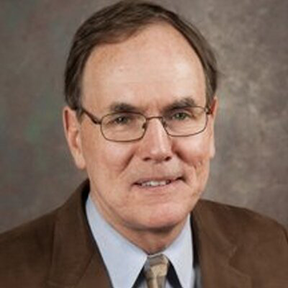
Fred Hofstetter
Fred Hofstetter, School of Education
Dr. Fred Hofstetter serves as a professor in the School of Education at the University of Delaware. He develops eLearning software and designs and publishes curricular materials used in UD’s graduate programs and undergraduate minor in educational technology. His research interests include educational technology, instructional design, multimedia, distance learning, advanced Web design, higher education, and music education. Recently Dr. Hofstetter has focused on the iPad, for which he has developed the iSeeNcode app for the School of Education’s IES literacy grant, and he has published the iPad Primer, which is an ePub available in the Apple iBookstore. For more on Dr. Hofstetter’s work, follow this link to his vita.

Chrystalla Mouza
Chrystalla Mouza, School of Education
Dr. Chrystalla Mouza is associate professor of Instructional Technology & Learning Sciences in the School of Education. She earned an Ed.D., M.Ed, and M.A. in Instructional Technology and Media from Teachers College, Columbia University and completed post-doctoral work at the Educational Testing Service (ETS). Her work focuses on teacher learning in the use of technology, applications of technology in K-12 classrooms, teaching and learning outcomes in ubiquitous and mobile computing environments. She is a principal investigator on several projects funded by the Delaware Department of Education to improve teacher quality in high-need schools, a co- PI on a National Science Foundation grant that provides teacher professional development in the area of computational thinking, and the learning scientist on two National Science Foundation funded projects that seek to improve climate science education by providing effective professional development to teachers. Her work has been published in key outlets and has been honored with 2010 Distinguished Research in Teacher Education Award from the Association of Teacher Educators.
Jan 7, PBL Classic
Date: January 7
Time: 9:45 a.m. – 11:00 a.m.
Location: Rodney Room, Perkins Student Center
Description: In this hands-on session, together we will refine your student learning objectives and problem activities allowing you to develop a plan that (a) monitors students’ progress in and perceptions of the activities and (b) determines how well students are meeting the learning objectives.

Kevin Guidry
Kevin Guidry, Center for Teaching and Assessment of Learning
Kevin R. Guidry is Senior Research Analyst at the UD Center for Teaching and Assessment of Learning. He works with faculty on exploring new pedagogies and improving existing teaching practices to enhance student learning. Guidry specializes in assessment of student learning and survey methodology having worked on teaching, learning, and assessment research and practice at levels ranging from individual courses to projects spanning hundreds of colleges and universities.

Kathy Pusecker
Kathy Pusecker, Center for Teaching and Assessment of Learning
Kathleen Langan Pusecker is the Director of Educational Assessment at the University of Delaware. She establishes and maintains relationships with faculty members, Chairs, Deans, and other senior internal constituencies and external agencies, to include national accreditation bodies. She also serves on the Faculty Senate General Education Committee that passed new goals in November 2014. Her responsibilities include assisting UD in addressing the Middle States Commission on Higher Education accreditation standards related to the assessment of general education and student learning. She helps to select and develop tools and oversees their implementation and the analysis and reporting of data. Pusecker establishes critical communications and coordination with internal constituencies and University senior decision-makers to address issues that may affect execution/implementation of University strategic plans, policies and programs. In addition, Pusecker publishes the reports of student learning outcomes for the College Portrait.
Jan 7, PBL New
Date: January 7
Time: 9:45 – 11:45 a.m.
Location: Mathematics Sciences Learning Laboratory, 053 McKinly Lab (please note the special location for this session)
Description: The University of Delaware’s new Mathematical Sciences Learning Laboratory (MSLL), which opened in Spring 2015, is designed to support students as they learn the key skills and concepts of foundational college mathematics. MSLL uses both adaptive learning technologies and team-based problem solving in innovative ways. Participants in this session will experience both computer-based learning with ALEKS and team-based problem solving. Participants will also learn about the data the MSLL team collects systematically to inform revisions to their approach. Whether or not your field is mathematics, you will learn about a successful approach to integrating technology and team-based learning aligned with current research on teaching and learning.

Dawn Berk
Dawn Berk, Mathematical Sciences Learning Laboratory
Dawn Berk is the founding Director of the Mathematical Sciences Learning Laboratory (MSLL) and Assistant Professor in the Department of Mathematical Sciences at the University of Delaware. She earned an M.S. in Mathematics and a Ph.D. in Mathematics Education from the University of New Hampshire. Her research interests focus on the teaching and learning of undergraduate mathematics and on the mathematical preparation of teachers. She is currently the PI on two grants from the National Science Foundation to investigate the effects of mathematics teacher preparation on teachers’ knowledge, skills, and classroom practice. As Director of MSLL, Dawn facilitates the work of a team of faculty to improve teaching and learning in the foundational mathematics courses by employing a data-driven, continuous improvement model to determine what works, what does not, and why.

Tammy Rossi
Tammy Rossi, Mathematical Sciences
Tammy Rossi is an instructor in the Department of Mathematical Sciences and the new Mathematical Sciences Learning Laboratory (MSLL). She spends her time finding ways to engage students and help students find success in mathematics. She developed the new curriculum and assessments for Math 010, one of the MSLL courses, and regularly serves as instructor and coordinator of that course.
Jan 7, PBL Classic
Date: January 7
Time: 11:00 a.m. to 12:00 noon
Location: Rodney Room, Perkins Student Center
Description: The PBL classroom offers a great setting for integrating communication skills (oral, written, team, electronic) with content objectives. How can we best support students as they develop these key competencies, sometimes referred to as “soft” skills? Can we design problems to foster the development of communication skills?
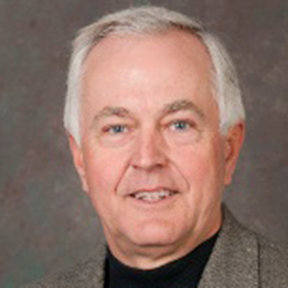
Steve Bernhardt
Steve Bernhardt, English
Dr. Stephen A. Bernhardt holds the Andrew B. Kirkpatrick, Jr. Chair in Writing at the University of Delaware, from which position he promotes strong writing and communication skills across the university. He is the author of Writer’s Help, a new, Web-based reference handbook from Bedford/St. Martin’s. He teaches courses in scientific and technical communication, first year composition, computers and writing, and grammar and style. Dr. Bernhardt currently directs the Institute for Transforming Undergraduate Education (ITUE) at UD, a group of faculty who promote active, engaged learning through team, problem and project-based teaching, frequently with an emphasis on innovative technologies.
Jan 7, PBL Classic
Date: January 7
Time: 1:00 – 2:00 p.m.
Location: Rodney Room, Perkins Student Center
Description: There is no single approved approach to PBL. Rather, teachers look at their classes, classrooms, and students, and they choose a given approach. Better yet, they experiment with a given approach and fine-tune their methods as they and their students become more successful. What are some ways that PBL has been approached in various classrooms? We will tap into the experience of our participants and facilitators to describe multiple models of PBL.
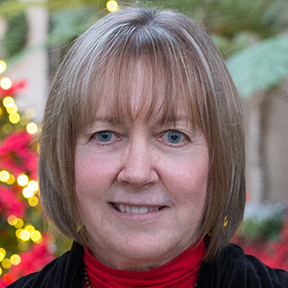
Deborah Allen
Deborah Allen, Biological Sciences
Deborah Allen is a professor of biological sciences at the University of Delaware (UD), and former program officer in the National Science Foundation’s Division of Undergraduate Education. In the mid-1990s, Allen joined a multidisciplinary team of educators to design, implement, and assess problem-based learning (PBL) curricula for introductory courses, including interdisciplinary ones for pre-service teachers. Allen is a founding member of the editorial board of CBE-Life Sciences Education and has authored feature articles for the journal since 2002. She is co-author/editor of several books on PBL and related instructional strategies, and is an advisor to a number of PBL-related federally funded projects. Allen is a recipient of UD’s Excellence in Teaching Award and of the American Society for Cell Biology’s 2013 Bruce Alberts Award for Excellence in Science Education, and has served as a Fulbright Senior Specialist in Péru to co-develop a PBL program for middle school environmental science.
Jan 7, PBL New
Date: January 7
Time: 1:00 – 2:00 p.m.
Location: Room 410, Harker ISE Lab
Description:
Citizen Science engages diverse participants on local, regional, national, and global scales in the collection, interpretation, and use of scientific data on a particular scientific problem. It is an increasingly important field involving thousands of volunteers who practice “scientific activities”, collect scientific data and disseminate scientific information without being “officially scientists”. The workshop aims at opening a discussion among educators from different perspectives and disciplines on topics including: How can students play an important role in deciding, observing and contesting how science and technology are being developed and implemented for the good of humanity and the natural world? How do citizen collected information, science, policy, and governance come together in policy making processes? How can Citizen Science support decision making within participatory democratic contexts? How can Citizen Science contribute to sustainable human environments?
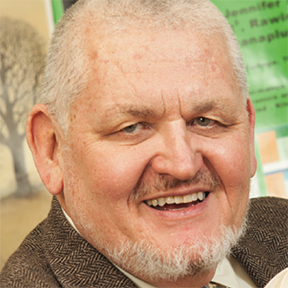
John Jungck
John Jungck, Interdisciplinary Science Learning Laboratories
John R. Jungck is the Director of the Interdisciplinary Science Learning Laboratories, Professor of Biological Sciences, and has joint appointments in the Department of Mathematical Sciences, the Bioinformatics/Computational Biology Program, and the Delaware Environmental Institute at the University of Delaware. He is the former Editor of Biology International, Bioscene: Journal of College Biology Teaching, the BioQUEST Library, and the American Biology Teacher. His major international commitments have been in Thailand, New Zealand, and Brazil. In 1986, he founded the BioQUEST Curriculum Consortium (http://bioquest.org). His honors include AAAS Fellow, AIBS Education Award, Honorary Doctorate from the University of Minnesota, ASCB Bruce Alberts Award, EDUCOM Educational software, SICB John A. Moore Lectureship, and a Fulbright Scholar in Thailand. His educational interests focus on social justice, quantitative reasoning, collaborative learning, and student empowerment.

Jon Manon
Jon Manon, Professional Development Center for Educators
Director of the Mathematics & Science Education Resource Center from 2007 until its merger into the PDCE in 2014, Dr. Manon holds the rank of assistant professor within the School of Education with a secondary appointment in the University’s Department of Mathematical Sciences. Jon has been providing professional development for K-12 teachers in mathematics for nearly two decades. He has served as Principal Investigator (PI) on numerous statewide projects and was instrumental in developing the original assessment system for school mathematics in Delaware. Jon has a special interest in using classroom video as data to help support reflection on practice and has been teaching the use of problem-based curriculum materials to promote problem solving and critical reasoning for all students as described in the Mathematical Practices of the Common Core State Standards.
Jan 7, PBL Classic
Date: January 7
Time: 2:15 – 4:00 p.m.
Location: Rodney Room, Perkins Student Center
Description: A continuation of problem-writing activities, in consultation with multiple facilitators and participants from cognate disciplines. All participants are welcome.

Deborah Allen
Deborah Allen, Biological Sciences
Deborah Allen is a professor of biological sciences at the University of Delaware (UD), and former program officer in the National Science Foundation’s Division of Undergraduate Education. In the mid-1990s, Allen joined a multidisciplinary team of educators to design, implement, and assess problem-based learning (PBL) curricula for introductory courses, including interdisciplinary ones for pre-service teachers. Allen is a founding member of the editorial board of CBE-Life Sciences Education and has authored feature articles for the journal since 2002. She is co-author/editor of several books on PBL and related instructional strategies, and is an advisor to a number of PBL-related federally funded projects. Allen is a recipient of UD’s Excellence in Teaching Award and of the American Society for Cell Biology’s 2013 Bruce Alberts Award for Excellence in Science Education, and has served as a Fulbright Senior Specialist in Péru to co-develop a PBL program for middle school environmental science.
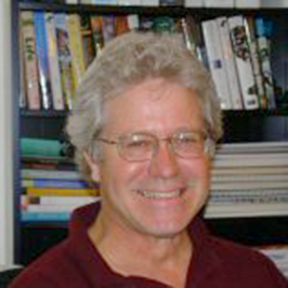
Richard Donham
Richard Donham, Biological Sciences
Richard Donham holds a Ph.D. in Biology from the University of Washington and was Senior Science Education Associate for the Mathematics & Science Education Resource Center at the University of Delaware. The Center provides professional development for in-service teachers and serves as a coordinating unit for University efforts to assist science and math education in the state. For more than a decade, Richard has been involved in middle and high school science curricular development and implementation at the state level. He also collaborates with other faculty to provide graduate level courses that fortify middle school and high school teachers understanding of science so they can be more effective in the classroom. With a secondary position in the Department of Biological Sciences, Richard also taught biology to undergraduate elementary education majors and was a leader in the use of inquiry pedagogies, particularly problem-based learning (PBL).

Susan Groh
Sue Groh, Chemistry & Biochemistry
Dr. Susan E. Groh is an associate professor in the Department of Chemistry and Biochemistry at the University of Delaware. As a co-founder of the Institute for the Transformation of Undergraduate Education at the University of Delaware, she has presented workshops promoting problem-based and active learning regularly since 1993. Together with Barbara Duch and Deborah Allen, she edited “The Power of Problem-Based Learning” (2001), a guide to using problem-based learning in undergraduate settings, and served as Editor-in-Chief of the PBL Clearinghouse, a repository for peer-reviewed PBL problems and supporting materials. Dr. Groh teaches general chemistry in the Honors program and has won numerous awards for her work with students, Including the University Excellence in Teaching and Excellence in Advising awards.
Jan 7, PBL New
Date: January 7
Time: 2:15 to 3:15 p.m.
Location: Room 410, Harker ISE Lab
Description: This session will present a case study for applying PBL principles to classroom activities that develop students’ technical skills. By moving beyond direct instruction, this approach sets the context for the remainder of the course by having students form teams, work with real course data, process ambiguous instructions, and make judgements regarding the best course of action.

Alenka Hlousek-Radojcic
Alenka Hlousek-Radojcic, Biological Sciences
Alenka Hlousek-Radojcic is an Associate Professor in the Department of Biological Sciences. She holds a Doctor of Philosophy in Plant Biology degree from the Michigan State University. Known to her students as Prof. Alenka, she is a recipient of an Outstanding Teaching Award from the College of Arts and Sciences and was a Fulbright Senior Lecturer at Tribhuvan University in Nepal. Alenka is leading the teaching team that consists of preceptors, faculty, teaching assistants, and laboratory support personnel for integrated Introductory Biology and General Chemistry course sequence serving about five hundred students, mostly freshmen, per semester. The team is developing and implementing interdisciplinary, inquiry based and collaborative curriculum that includes peer mentoring and team work. Her scholarly activities are focusing on studying development of student critical thinking and graduate assistant teaching skills.

Sandy McVey
Sandy McVey, Academic Technology Services
Sandy McVey, Educational Technology Consultant II, collaborates with instructors to develop customized teaching activities that leverage technology. Based at Faculty Commons, Sandy conducts individual appointments and facilitates group sessions focused on student engagement including in-class polling options. Sandy’s Microsoft Office certifications in PowerPoint, Excel, and Word are highly sought after by faculty who want to ramp up their own skills. She is invited to lead technical sessions in the classroom when students are challenged to apply more advanced features of these business standard products in preparation for the real-world opportunities. Vested with a Google IQ, she’s an ideal partner to help develop activities utlitizing the Google Apps at UD.
Jan 7, PBL New
Date: January 7
Time: 3:15 – 4:00 p.m.
Location: Room 410, Harker ISE Lab
Description: Team-based learning, or TBL, is a structured approach to learning that places responsibility on both individuals and teams to learn and apply course content. This session will help participants understand the methods of TBL and distinguish this popular approach from PBL.

Mark Serva
Mark Serva, Accounting & MIS
Mark A. Serva is an associate professor of management information systems at the University of Delaware. His research focuses are trust in electronic commerce and latent growth modeling. He is the former director for the Institute for Transforming Undergraduate Education (ITUE) at the University of Delaware, a leading advocate for PBL and other student-centered pedagogies. He is the current program director for the global enterprise technology (GET) program, which places students in extended internships in area companies. The program allows students to make significant progress toward graduation, while also defraying the costs of higher education. The program has placed 100% of its students since its inception in 2010. Dr. Serva has also worked as an educational consultant for over ten years, conducting PBL workshops around the United States and the world for UD and Harvard University.
Jan 7, PBL Classic, PBL New
Date: January 7
Time: 4:15 – 5:00 p.m.
Location: Rodney Room, Perkins Student Center
Description: An experienced team of ITUE/PBL leaders will lead a question/answer discussion of how to address issues related to PBL: managing groups, assessing learning, working with large classes, using distance technologies, designing problems, assigning grades, meeting content goals. If you have a question, the panelists will try to address it.
Panelists:
Deborah Allen, Biological Sciences
Steve Bernhardt, English
Richard Donham, Biological Sciences
Phil Duker, Music
Sue Groh, Chemistry & Biochemistry
Jeanne Narum, Learning Spaces Collaboratory | Project Kaleidoscope (PKAL)
Mark Serva, Accounting & MIS
Hal White, Chemistry & Biochemistry















